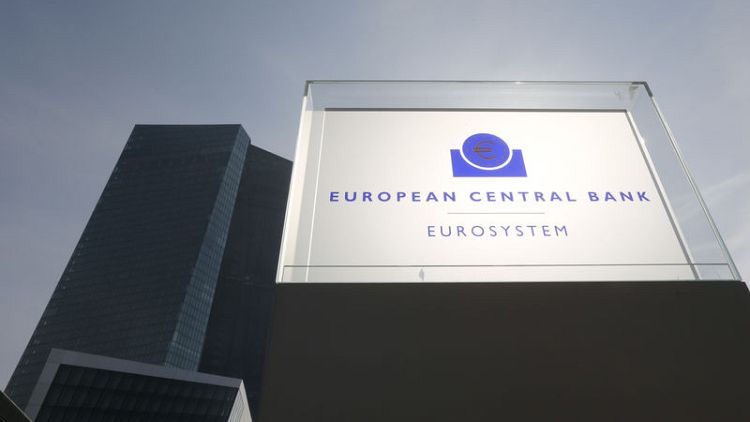By Ritvik Carvalho
LONDON (Reuters) - As divisions grow at the European Central Bank over continued interest rate cuts, at least one indicator appears to side with policymakers who are arguing for tighter monetary policy: household savings rates.
Interest rate doves -- policymakers who favour looser monetary policy to keep the economy moving -- argue that ever-lower interest rates disincentivise households from saving so that they spend and invest more.
But policymakers and investors alike are beginning to question whether that effect has limits once interest rates go below zero percent, which may instead create even more anxiety about economic health. Negative rates meanwhile raise costs for European banks, hurting their ability to lend.
As the following graphic shows, household savings rates in the European Union have fallen in tandem with the German 10-year bond yield ever since the ECB cut rates at the height of the sovereign debt crisis. But in the past two years, that trend appears to have broken down, with savings rates moving substantially higher even as long-term borrowing rates plumbed ever-deeper below zero.
Graphic: Rate cuts losing bite? - https://fingfx.thomsonreuters.com/gfx/mkt/12/8359/8288/ratecuts2.png
In September, the ECB cut its already negative key deposit rate further into sub-zero territory -- a move that has laid bare growing divisions and pushback from some policymakers.
Austrian central bank governor Robert Holzmann said on Thursday the ECB should raise interest rates as soon as possible, as negative rates send the wrong signal to savers.
"It's really sending the signal that we've reached the stage where cutting rates further cannot be the solution anymore," said Didier Saint-Georges, head of portfolio advisors at French asset manager Carmignac.
(Reporting by Ritvik Carvalho; Editing by Mike Dolan and Catherine Evans)



